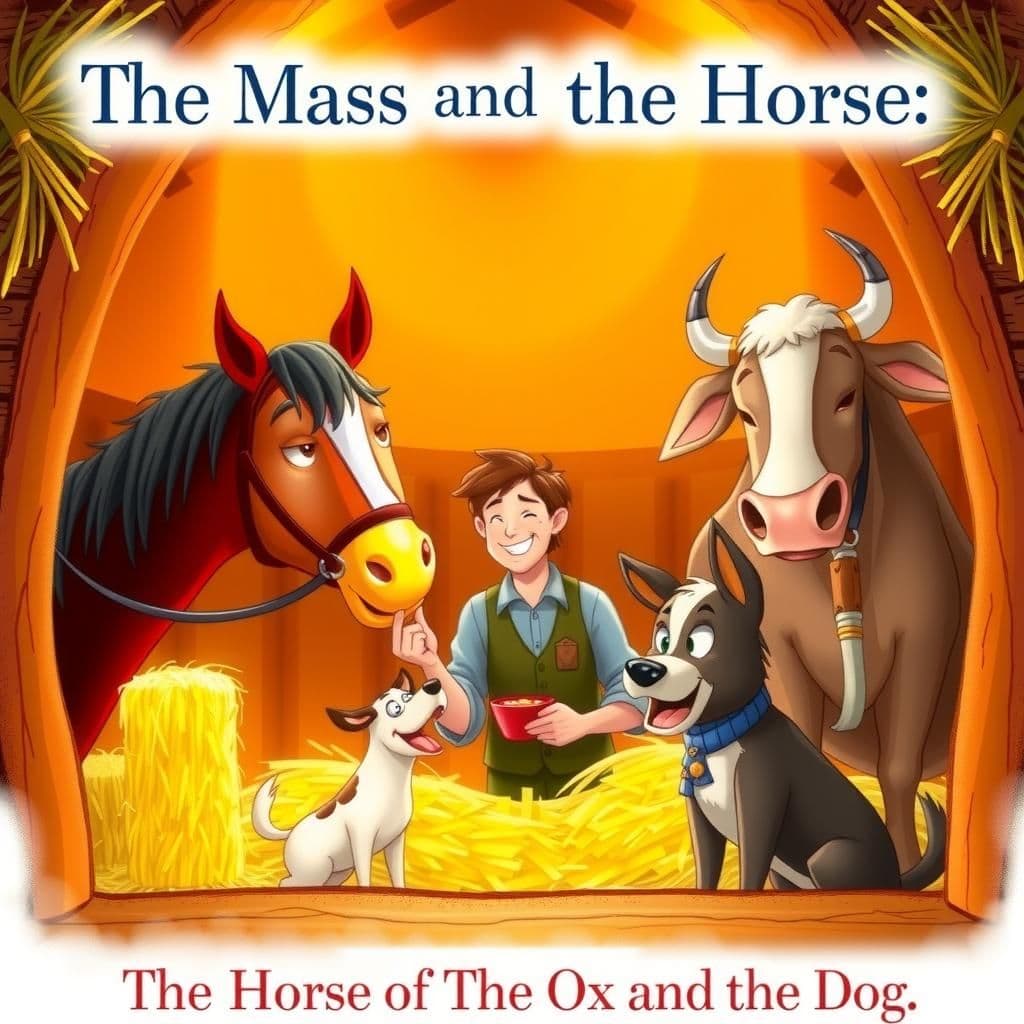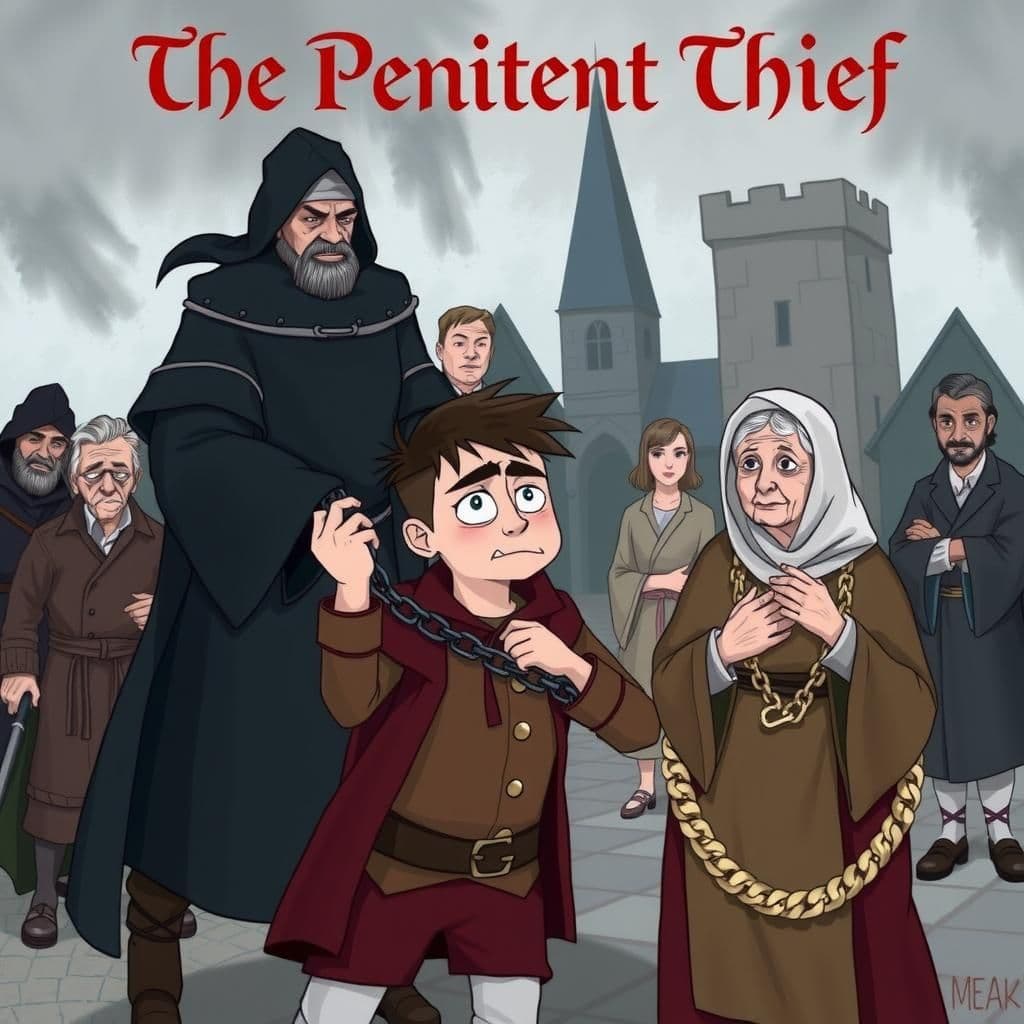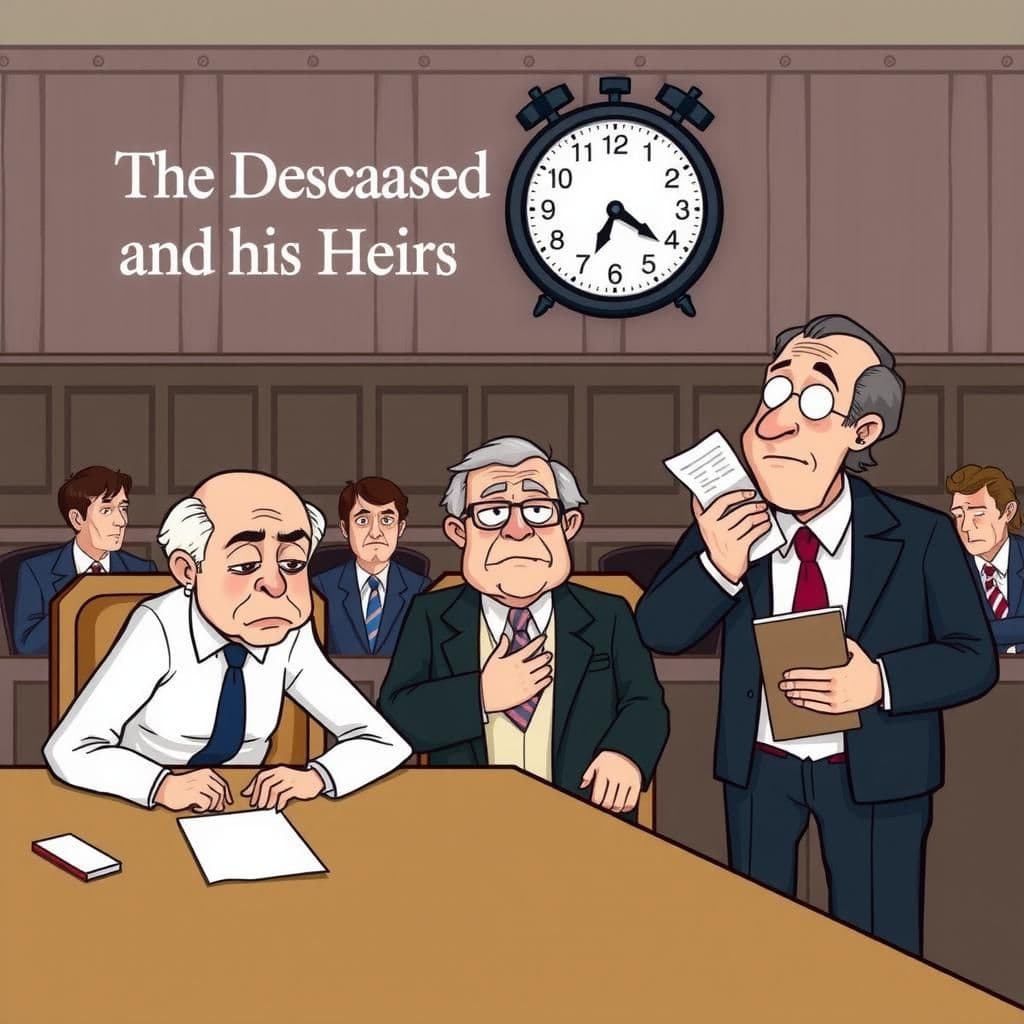The Horse and the Stag
In this heartwarming moral story, the Horse, once the sole ruler of the plain, seeks revenge on a Stag that intrudes into his pasture. Enlisting the help of a man who promises to aid him, the Horse ultimately finds himself enslaved to the very human he sought to empower, illustrating a powerful lesson about the consequences of vengeance and the importance of freedom. This tale serves as a poignant reminder of the lessons from moral stories that resonate in childhood stories with moral lessons.

Reveal Moral
"Seeking revenge can lead to unintended consequences and result in one's own subjugation."
You May Also Like

The Man the Horse the Ox and the Dog
In "The Man the Horse the Ox and the Dog," a heartwarming tale from classic moral stories, a horse, ox, and dog find refuge from the cold with a kind man who provides them food and warmth. In gratitude, they divide the man's life span among themselves, each infusing their portion with attributes that reflect human nature at different stages, offering young readers valuable lessons about the impetuousness of youth, the industriousness of middle age, and the irritable nature of old age. This unique moral story serves as an entertaining and educational reminder of how our characteristics shape our lives.

The Penitent Thief
In "The Penitent Thief," a man, raised by his mother to steal, faces execution for his crimes and blames her for his fate. As he confronts her, she challenges him by questioning his failure to avoid capture, illustrating the life-changing lesson that personal accountability is crucial. This heartwarming moral story serves as a reminder of the consequences of one's choices and the importance of accepting responsibility for one's actions.

The Deceased and his Heirs
A man dies, leaving a vast estate that sparks lengthy litigation among sorrowful relatives. After years of fighting, only one heir emerges victorious, only to discover from his attorney that there is nothing left to appraise, revealing the futility of the process and the attorney's self-serving motives. This quick moral story illustrates the often-overlooked truth about value-based moral stories: that the pursuit of wealth can lead to disillusionment when true value lies elsewhere.